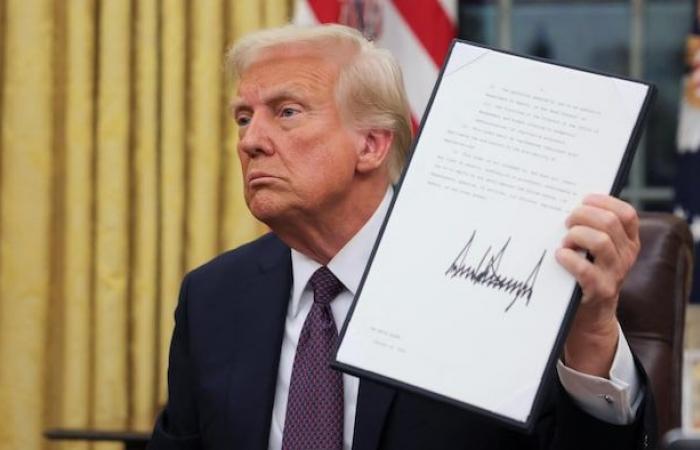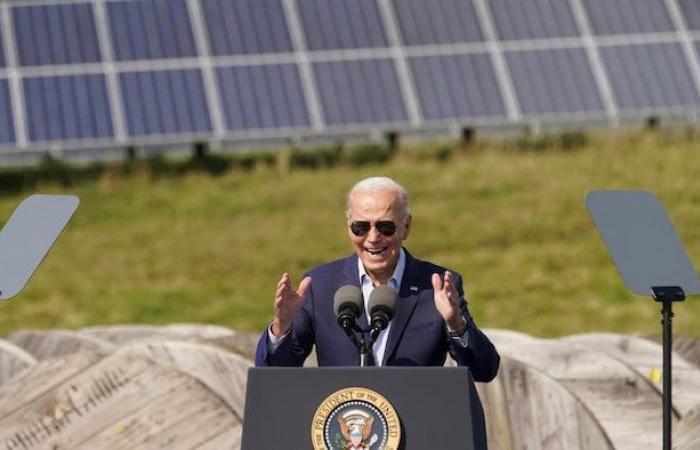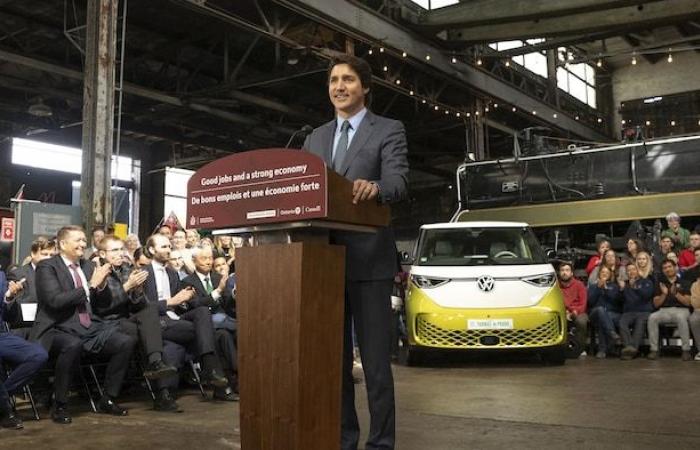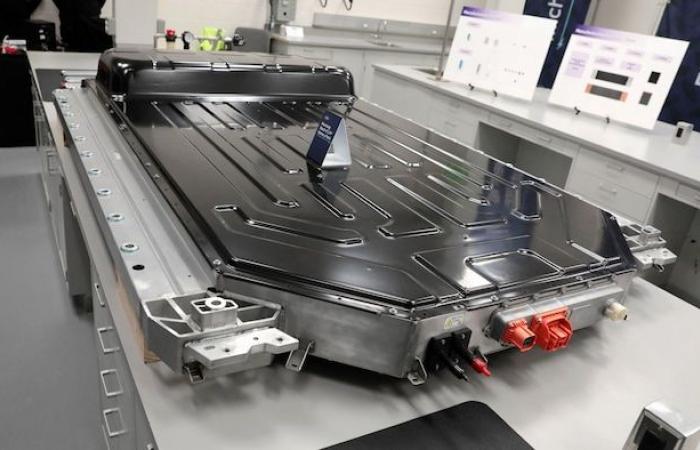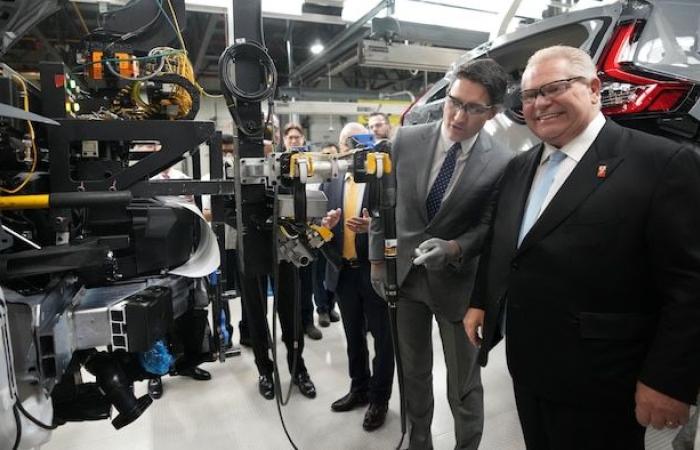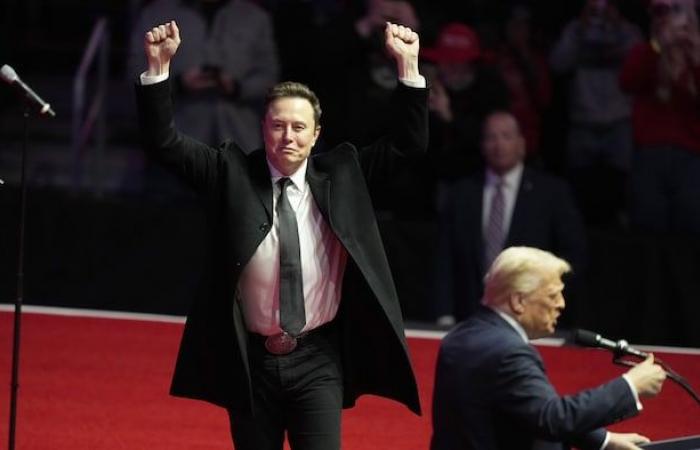Back at the White House, Donald Trump was quick to attack the subsidies granted by his predecessor to the electric vehicle industry, as he had promised to do during the presidential campaign.
In his inauguration speech, he pledged to end Green New Deal
in reference to the billions invested in green energy projects across theInflation Reduction Act (IRA).
It is on the provisions of this American law that certain parts of the financing agreements signed by the Canadian governments with Volkswagen, Stellantis-LG (NextStar Energy) and Northvolt for their battery factory projects.
Ottawa confirmed last fall that the tens of billions of dollars in production subsidies granted to these companies are conditional on maintainingIRA.
Without being able to repeal the law with a single stroke of the pen on Monday, Donald Trump once again called his future into question.
Open in full screen mode
US President Donald Trump signed several dozen decrees, proclamations and memorandums on Monday, hours after he was sworn in.
Photo: Reuters / Carlos Barria
By executive order, the US President required all US federal agencies to temporarily suspend the provision of any funding granted through theIRA.
He also asked agencies to produce a review of their policies that allow them to disburse funds through this law, in order to align with the objectives of the new administration.
To this end, Donald Trump indicates consider eliminating unfair subsidies and other poorly designed government-imposed market distortions that favor electric vehicles over other technologies
.
A debate that remains to be made
According to Daniel Breton, President and CEO of Electric Mobility Canada, there is no guarantee that the upcoming review of the Inflation Reduction Act will result in its repeal.
According to him, many Republican elected officials will put pressure on the Trump administration to reconsider its position.
Among more than 300 renewable energy and electric vehicle projects announced since the adoption of theIRAmore than 60% are in districts represented by a Republican elected to Congress, according to data compiled by the E2 group.
Open in full screen mode
Joe Biden speaks in front of solar panels to promote his Inflation Reduction Act, during a visit to the Vernon Electric Cooperative in Westby, Wisconsin, September 5, 2024. (File photo)
Photo: Reuters / Kevin Lamarque
Apart from the great declarations of principles, the reality on the ground is that there are many jobs that have been created
maintains Mr. Breton.
Furthermore, in his eyes, the objective of the law has never been to harm the production of combustion vehicles, which still represent more than 90% of sales in the United States.
The primary reason for the Inflation Reduction Act was competition from China in new technologies
indicates the activist for the adoption of electric transport.
According to him, if the United States repeals the law, the delay that American manufacturers have over their Chinese competitors in the development of electric vehicles risks increasing.
Ultimately, this [pourrait] endanger the American automobile industry
he believes.
A lifeline for Canada?
For his part, Greig Mordue, associate professor of automotive engineering at McMaster University, is crossing his fingers that Donald Trump will drop Canadian government subsidies for battery factory projects.
Canada may have a narrow escape
judges the one who has long been skeptical of the benefits of these investments.
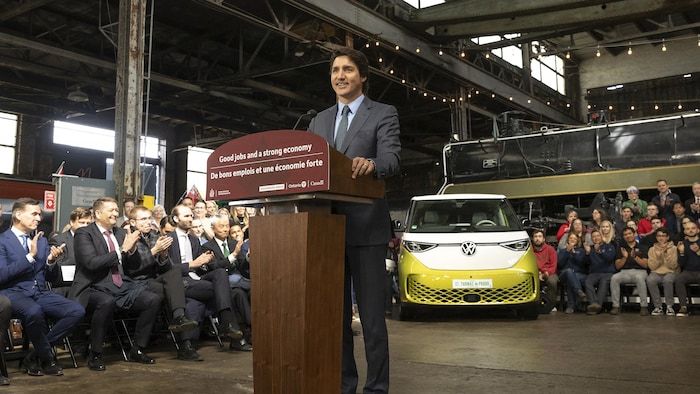
Open in full screen mode
Prime Minister Justin Trudeau announced the arrival of the Volkswagen battery plant in St. Thomas, Ontario, on April 21, 2023. (File photo)
Photo: The Canadian Press / Tara Walton
In November 2023, the Federal Parliamentary Budget Officer estimated the maximum amount of production subsidies offered to Northvolt, Volkswagen and Stellantis at more than $43 billion.LG (NextStar Energy) by 2033.
-Even if the current agreements persist, the bill for governments may be less steep, given that certain projects are experiencing delays and that demand for batteries is currently lower than expected.
Alone NextStar Energy has launched its production to date. The company receives the equivalent of US$10 per kWh for the battery modules it produces and sells.
The manufacturer, based in Windsor, Ontario, intends to begin producing battery cells this year, which are subject to subsidies of US$35 per kWh.
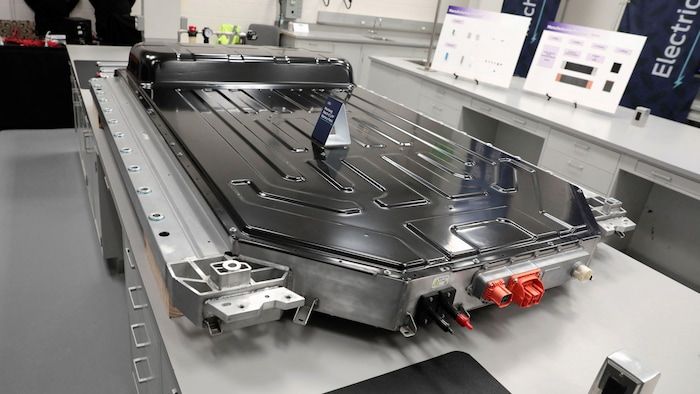
Open in full screen mode
The amount of production subsidies granted to battery manufacturers located in Canada was modeled on the provisions of the American Inflation Reduction Act. (Archive photo)
Photo : Reuters / REBECCA COOK
Volkswagen, for its part, hopes to open its factory in St. Thomas in 2027, while the Northvolt project in Montérégie could be delayed by 12 to 18 months due to the financial setbacks of the Swedish manufacturer.
In the opinion of Mr. Mordue, the factory NextStar Energy is probably developed enough to survive without the promised subsidies. According to him, the fate of the Volkswagen project would also not be sealed by the disappearance of public aid, even if it is less advanced.
For many reasons, it is more uncertain what will ultimately happen to the Northvolt factory in Quebec
estimates the former Toyota Canada executive.
Optimistic politicians
Despite the current uncertainty, Ontario Economic Development Minister Vic Fedeli is confident that automakers will continue the transition to electric.
They have solid plans. The world continues to change, demand continues to change
he maintains. These are multinationals making multi-billion dollar decisions and we are here to support their decisions.
At the same time, he praises the interventionism of the Ontario government to convince manufacturers to invest in the province.
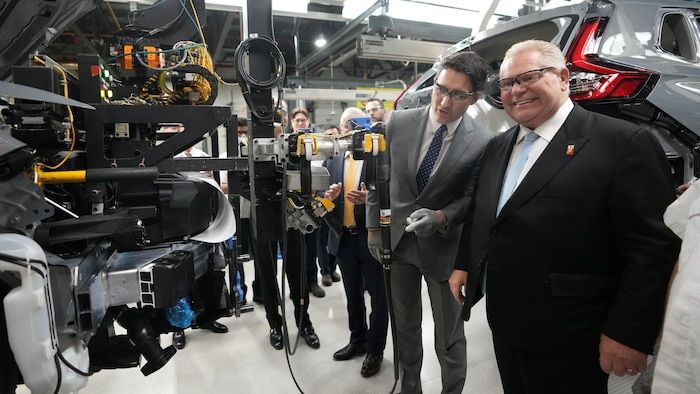
Open in full screen mode
Doug Ford’s government has invested several billion dollars to encourage automobile manufacturers to locate their factories in Ontario. (Archive photo)
Photo: The Canadian Press / Nathan Denette
Consider the Honda deal, the largest transaction in our history at $15 billion. There is no element of theIRA in there
he pleads.
The Japanese manufacturer announced in the spring its intention to build four new factories in Ontario to produce batteries and electric vehicles. These projects could, however, be delayed depending on North American demand, admitted in the fall CEO from Honda Canada.
For his part, the federal Minister of Innovation, Science and Industry, François-Philippe Champagne, is not convinced that Donald Trump will end up blocking American subsidies to the electric vehicle industry.
He supported Monday on the show Economy Zone that Elon Musk, owner of Tesla who became one of his close advisors, could influence his decision.
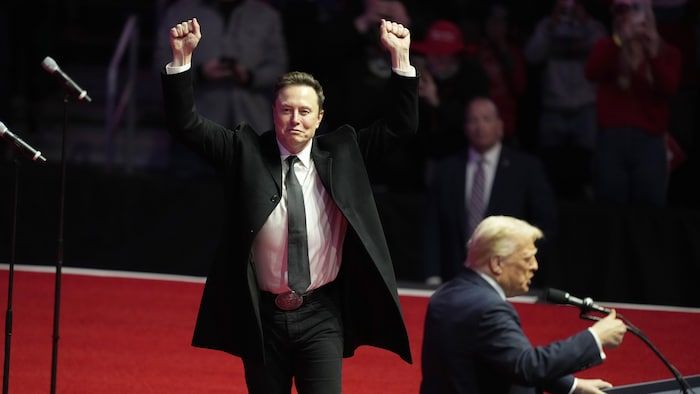
Open in full screen mode
Elon Musk on stage with Donald Trump in Washington, on the eve of the latter’s swearing-in.
Photo : Associated Press / Alex Brandon
To this end, Daniel Breton of Electric Mobility Canada deplores that the financing of Canadian factories is based on a decision by the Americans.
Canada must have its own thinking
he believes.
For example, he notes the absurdity of imposing a 100% surcharge on Chinese electric vehicles at the request of the United States before being in turn subject a few months later to an American tariff threat.
We’re a bit like the jokers. We really need to start thinking differently than simply saying: “Whatever happens, we align with the Americans.”
he argues.
With information from Philippe de Montigny

